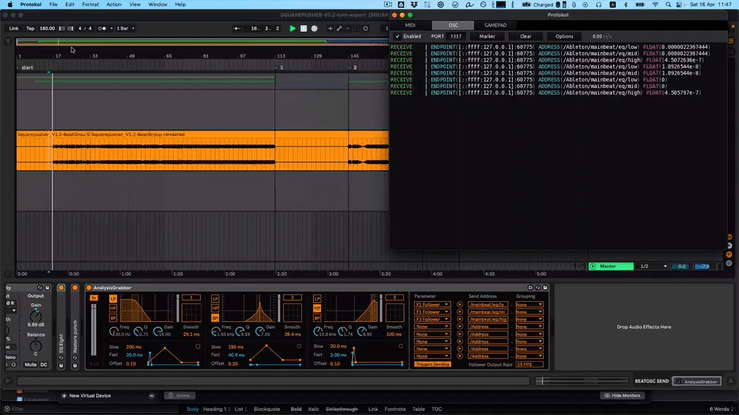Reflection and Discussion
I feel that by now I have reached a milestone. I could not have imagined that I would start programming in a proper language like Python. I recall a conversation I had with Laurent Peckels at the beginning of our study in Maastricht when we talked about my project. He said: “It could be very useful if you did some programming in Python….”
I replied: “I will, never, never ever start to program in Python for my setup. Because, if I do so, I’ll open Pandora’s box and I won’t have enough time to use my setup and make great music with it.”
Well, I did open Pandora’s box wide open and I spent uncountable hours getting my ideas formed into working code. Before I started making music, I had programmed some software when I was 11 years old. I remember it as a rewarding and deeply satisfying process. At the same time, I also spent a whole week in front of a monitor. If my mother had not provided regular meals, I probably would have starved a great deal.
When I encounter a technical problem, the curiosity to find a solution is very powerful in me. This has been a driving force for me ever since. It has led to many great solutions and my current setup is working in a way I would never have imagined. The simultanious possibilities and stability of my setup is most satisfying.
That being said, I have not spent enough time making music in comparison with how much time I spent developing it. I would estimate that to 1 part making music, I invested 7 parts in programming.
That is why it feels like I am more at the beginning of my project, rather than at a point of drawing a final conclusion.
The good thing in this: the fun part lies ahead of me. When playing and experimenting with my setup, it is easy to get lost for hours just jamming and making soundscapes. At some point, I had to force myself to forget about all future plans of improving and re-programming my seltup, and instead work with what I have got. That strategy worked greatly in my favour.
choices and limits
I learned about the beauty and effectiveness of setting limits. In many conversations I had with Matthias Nowack, Scott Harper and Markus Birkle, it was a recurring motif that I should lower my possibilities to give my creativity an appropriate room to unfold.
It lies in my character to first look at all possibilities and collect them. It is an acquired competence to set limits. That does not happen naturally or instinctively to me. In regards to my development as an artist, this technique is the most helpful and effective one I have learned over the course of the last two years.
It helps to focus on the music. I read somewhere that our brain is not capable to process more than 3 parameters simultaneously. It definitely works best when focusing on only 1 thing.
side effects
The world of pedals is a small one, when you put the few big brands aside. There are a vast number of small companies that build the quaintest pedals. I was able to make connections with some companies and the people behind them. It feels like a familial community. e.g. I became a beta tester for 3degrees audio. I also did an interview with Scott Harper, the brain behind the youtube channel KNOBS and the co-author of the book “PEDAL CRUSH”.
I had zoom calls with other members of the ClyphX Pro community to exchange problem solutions. I also became an alpha tester for the new version which works with ABLETON LIVE 11.
Reflection
I am very satisfied of how far I’ve come and I am thrilled to see where it will go. I had few occasions to test my setup in a setting where I can improvise freely with it. Due to the open concept and flexibility of ABLETON LIVE and ClyphX Pro it is easy and fast to integrate and realise new ideas. ABLETON LIVE is designed to connect to other software so the idea to integrate my setup into an existing band which also has ABLETON LIVE is relatively seamless.







